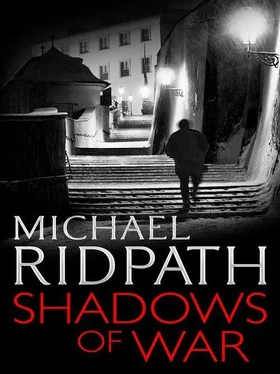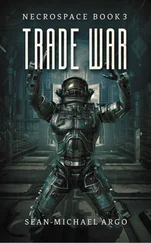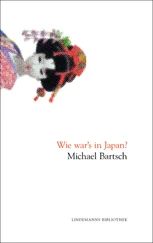And Millie had spent a whole week, a wonderful week, with Theo. Much of the time was passed waiting for responses from England. They had taken the train from Zurich up to the Walensee or to Zug, and gone for long walks through Alpine meadows. They had spent a magical day wandering around the old abbey at St Gall, where Theo had told her about Notker the Stammerer, a medieval monk with a vivid imagination and plenty of ribald stories about Charlemagne. Theo was a fascinating man; although he was arrogant, with a tendency to patronize, he did listen to what she had to say. He made her think: about politics, about history, about her family. And most of all about herself.
After that, they had sent frequent letters to each other. Once war had broken out, Theo had come up with an address in Denmark she could use. And in a few minutes, she would see him again, continuing her mission where they had left it six months before.
None of which Conrad knew anything about.
They were approaching the harbour. No longer did they encounter the good burghers of The Hague in their Sunday best suits; now rougher-dressed fishermen and their women in black shawls and white lace caps, each fastened with two prominent buckles, were enjoying their day of rest. The latest craze among the children seemed to be rolling bicycle wheels along the street with sticks.
Since it was a Sunday, the fishing fleet was crammed into port, and the wind made a racket as it strummed the rigging of the sailing vessels. Millie remembered them from her childhood: they had made quite a sight in full sail setting out to sea to scoop up herring.
Whereas most of the cafés on the promenade had been closed for the winter, down by the harbour they were bustling. They found their café, secured the last table, and ordered some coffee in German. Most of the other patrons were local fishermen.
‘Where is he?’ whispered Constance.
‘He’ll be here soon,’ said Millie.
Constance looked around the café. ‘Shall we blend in? Do you think they can tell we are foreign?’
‘I think they can,’ said Millie. ‘But that’s all right. Plenty of foreigners come here in the summer.’
‘Do they have Jews in Holland?’ Constance asked.
‘I think there are rather a lot of them,’ Millie said.
‘That’s strange. I haven’t seen any,’ Constance said.
‘How do you know?’ asked Millie.
‘Oh, I can tell.’
Millie glanced sharply at her companion. ‘Don’t you like Jews, Constance?’
Constance hesitated with her response. ‘I am sure there are many perfectly decent Jews,’ she said primly.
‘There are,’ said Millie. ‘In fact, my brother is engaged to one.’ She was exaggerating a little, Anneliese wasn’t exactly a Jew and she and Conrad were not exactly engaged, but Millie liked Anneliese and she disliked the casual anti-Semitism of so many English people. What she really objected to was the way it seemed to have become more frequent since refugees had begun to arrive from Germany, Czechoslovakia and Austria.
‘Your brother is a socialist, isn’t he?’ Constance said.
‘What’s that got to do with it?’ said Millie.
‘Oh, nothing. Nothing at all,’ Constance said with a smile. ‘Look, I’m sorry, Millie. I am sure there are all sorts of decent socialists too. Really, politics isn’t my thing.’
Millie wasn’t entirely convinced. If that really was the case, why had Sir Henry Alston chosen her to accompany Millie? It was true that Millie did need someone to accompany her to Holland, and that Constance was game for any adventure, yet she seemed terribly innocent and naive. Not a natural person to select for a part in complicated diplomatic negotiations. But she had proven herself a jolly travelling companion so far, and perhaps it was better that Millie be left to deal with the discussions herself.
‘Millie!’
Millie looked up to see Theo standing over their table. The sight of him made her heart skip, and she could feel her face flush. She got to her feet. Theo reached for her hand, and in her confusion she thought he was going shake it, rather than hold it to his lips with good old-fashioned German courtesy.
‘This is Constance Scott-Dunton,’ Millie said.
She saw a flicker of interest in Theo’s eyes as he turned to her companion and kissed her hand as well. A preposterous surge of jealousy flashed through Millie’s veins. Constance was attractive, there was no doubt about that, but she was also an idiot. There was no chance that Theo, with his intellectual depths, would be interested in her. Besides which, Constance was married. She had prattled on at length about her glamorous husband Peter who was serving on a cruiser somewhere in the Atlantic Ocean.
‘Would you like some coffee, Theo?’ Millie asked, chastising herself for being so foolish.
‘I would love some,’ said Theo. They were speaking English: Theo was fluent, of course. ‘And I like the look of those cakes over there.’
They talked politely of the women’s journey, Millie confessing that she had been sick in the aeroplane, and also that she had been terrified of being shot down by German fighters.
‘Isn’t it good to be in a neutral country, though?’ said Theo. ‘Here people aren’t afraid of being bombed at any time. Or not yet.’
‘Do you think Holland will be brought into the war?’ asked Constance.
Theo hesitated.
‘You can speak to Constance as to me,’ said Millie. ‘My father chose her to accompany me. He trusts her.’
As she said it, she wasn’t absolutely certain that was true. But she knew that her father trusted Sir Henry Alston, and it was clear that Alston trusted Constance, even if Millie herself wasn’t quite sure that was wise.
‘Well, Mrs Scott-Dunton, I believe it likely that Holland will be drawn in sooner or later.’
‘Ooh. Is your army planning to invade?’ asked Constance with a lack of subtlety that appalled Millie.
Theo waited to reply as a waitress delivered some cakes. ‘I can’t really answer that question. I’m sure you understand.’
‘That’s a shame,’ said Constance.
Theo smiled quickly. ‘Well, Millie, I presume you have a message for me from your father?’
Millie reached into her bag and withdrew a plain envelope, which she handed to Theo. He opened it and pulled out a two-page letter.
‘Should I read this now?’
Millie nodded, and watched as Theo scanned the note. Millie had read it herself and discussed it in detail with her father. It said that since Britain was at war with Germany, it was very difficult for the British government to negotiate directly with the leaders of a possible replacement regime to Hitler’s, should Hitler retire suddenly. But, it went on, Lord Oakford was confident that should a new German government wish to discuss peace terms, then he, personally, would ensure they would have a sympathetic hearing from the British Cabinet, a much more sympathetic hearing than they had received the year before.
‘My father asked me to add a couple of things,’ Millie said. ‘He knows about the talks between Captain Schämmel and British representatives here in Holland, and he says that the Cabinet was prepared to take Schämmel seriously, before they found out he was a fraud. He is a fraud, isn’t he?’
‘Oh, yes. He’s a Gestapo agent.’ Theo glanced at Millie. ‘You know what happened at Venlo? Your brother was there.’
‘I know. I saw Conrad in London a couple of days ago. Apparently he’s trying to meet you here.’
‘He succeeded,’ said Theo. ‘I spoke to him yesterday. He doesn’t know you are here, does he?’
‘Oh, no. And please don’t tell him. He would be furious if he found out.’
‘I’m sure he would,’ said Theo dryly. ‘What would you like me to do with this?’
Читать дальше












